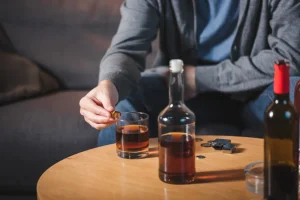This can be one of the more emotional substance abuse group activities as it forces the client to look at their lives as a whole and highlights that we have limited chances. Make sure to give the group plenty of time to process after this activity. The initial moments of a substance abuse support group can be filled with apprehension and vulnerability. Introduction activities are crucial in breaking down barriers and creating a welcoming atmosphere.
Thought Replacement Activity
Print out the sheet and cut out the positive sayings and affirmations into strips or for larger groups, print out three or more copies of the affirmations. Each group member will need at least twelve strips of paper to apply to posters. The purpose of this exercise is designed to help clients discover and celebrate their positive traits and affirmations, so providing clients with several strips to choose from is critical. At any moment, someone’s aggravating behavior or our own bad luck can set us off on an emotional spiral that threatens to derail our entire day. Here’s how we can face our triggers with less reactivity so that we can get on with our lives. Draw or paint a picture of something in nature that has found a way to thrive in a harsh environment, such as a cactus in the desert, or tree roots bursting up from a sidewalk.
Discussing Self-Care

A template for tracking attendance, cases discussed, and any other group topics. A fun worksheet for creating a bucket list of things that are only possible in sobriety. A 1-page checklist with quick tips, self-soothing, and indulgent ideas for self-care. A 1-page worksheet for exploring ways to resist urges to use in early recovery.
What are warning signs that you or a loved one may have a drug abuse and addiction disorders?
This article will cover what group therapy is and some of the more common types of group therapy and activities used for addiction treatment. You’ll know when an activity won’t resonate with your group, or notice when another elicits an incredibly impactful and engaging conversation. Having a large repertoire of substance use disorder group topics ready to go will make it easy for you to choose the one that’ll have the best outcome for your clients. Start with an icebreaker.Sometimes, the toughest part of group therapy is just getting your clients to open up. Anxieties are high for new groups, and even those that have been together for a while can go stale and need something to reinvigorate the atmosphere. Icebreakers at the beginning of any group help to break the tension and facilitate more personal connections between participants.
What Is Group Therapy For Substance Abuse?
Group members can then discuss their favorite scents and the feelings they provide. Triggers are people, places, feelings, or other things that make you want to abuse drugs. Our caring admissions navigators are available 24/7 to answer your questions about what to expect at rehab, levels of addiction treatment, and how to start the rehab admissions process.

Cognitive Behavioral Techniques for Group Sessions
That’s why some recovery groups have members anonymously write down their fears and place them in a bowl or bag. The group leader then reads each fear, allowing substance abuse group activities members to identify shared fears and feel less alone. This exercise demonstrates the importance of sharing your feelings so you don’t confuse your loved ones.
These include acknowledging the reality of death, moving toward the pain of loss, remembering the person who died, developing a new identity, searching for meaning, and continuing to receive support from others. As clients do this individually, they can share the effects of the problem with group members, which offers support and validation. Enhance wellbeing with these free, science-based exercises that draw on the latest insights from positive psychology.
- Several exercises and techniques that work well in younger groups are listed below.
- In residential treatment, clients attend mandatory groups as part of the daily schedule.
- Lastly, substance abuse group activities can provide group leaders with an opportunity to provide psychoeducation in an interactive way that members respond to.
- Cognitive-behavioral techniques focus on identifying and changing negative thought patterns and behaviors.
thoughts on “Group Therapy: A Comprehensive Resource Guide”
These cards can be used in a SUD inpatient or outpatient setting to facilitate group discussions about recovery. The facilitator can vary things up by letting group members pick someone else to answer their question once they’ve finished sharing. Alternatively, group members can take turns drawing cards, but all group members are encouraged to share their answers.
